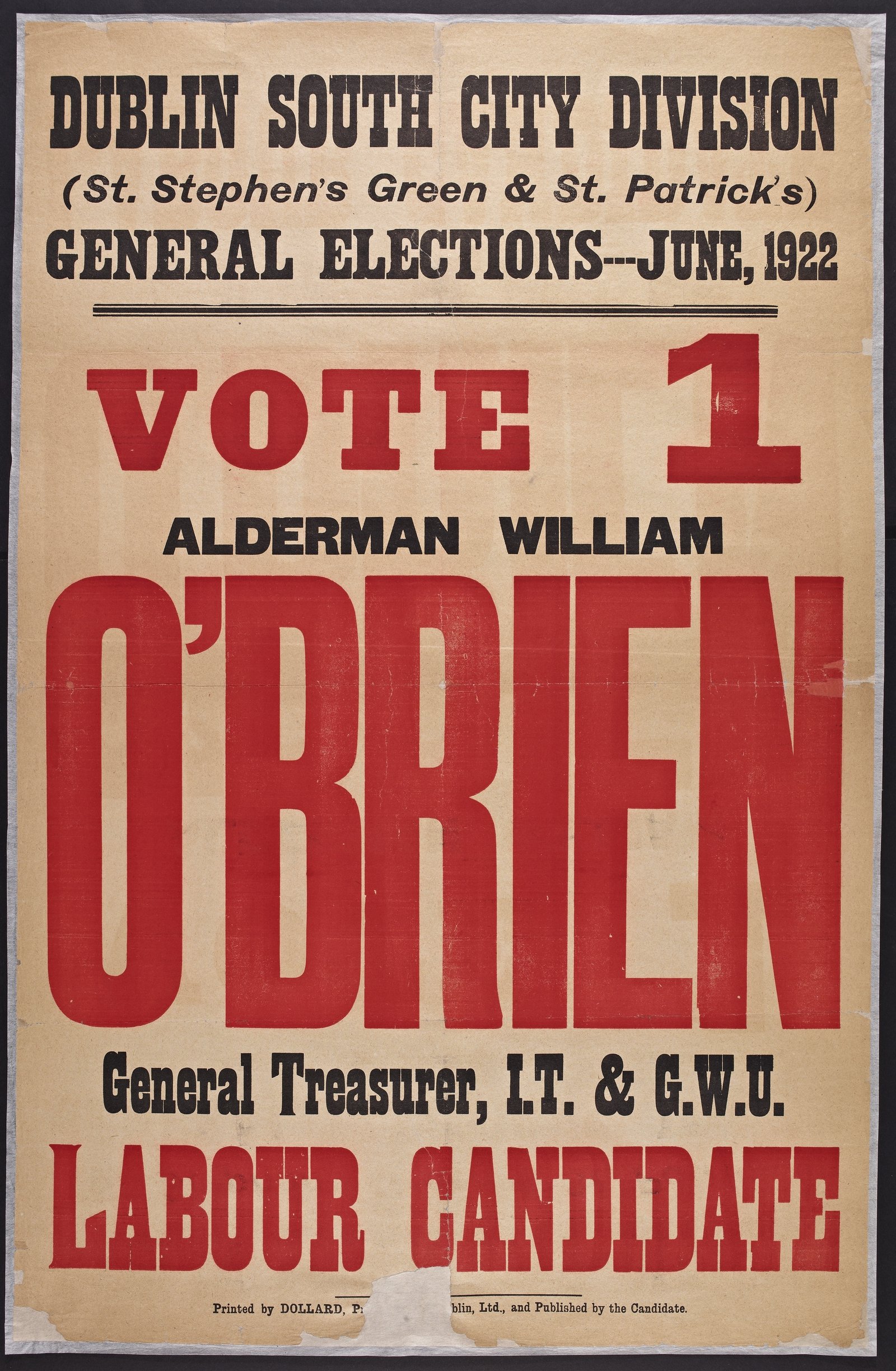Irish election ‘farce’ – Dáil hears allegations of widespread voter fraud
Dublin, 21 October 1922 – The conduct of the last general election was so bad in places as to render the election ‘something in the nature of a farce’, a minister in the provisional government has alleged.
Ernest Blythe, Minister for Local Government, told the Dáil yesterday that the level of personation – voting while pretending to be someone else – practiced in the election was ‘an absolute scandal’. He supported the motion tabled by Alderman William O’Brien calling for a committee to be established to ensure the ‘prevention of corrupt practices during the election of members of the legislature and of local governing bodies.’
Alderman O’Brien claimed that since 1918 ‘this evil [personation] has grown until at a recent election it increased to an extent that was never witnessed or dreamt of in the past.’
Dublin City offered a case in point in the recent Dáil election:
‘I think it would be fairly safe to say that if personation existed in the past to an extent of 5% or 10%, it would be an outside figure, but I am prepared to submit evidence that in one constituency with which I happened to be connected personation existed to the extent of 60% to 75% of the votes for a particular candidate. Deputies may not believe all that, but I now bring it forward as a solemn fact that can be supported by evidence.’
British Pathé newreel coverage of the 1922 Dáil election
Speaking in the course of the same debate, the Labour Party leader, Thomas Johnson, remarked upon what he referred to as the growing trend of women carrying out personation. It was not infrequent, Johnson observed, for women to put 15 or 30 votes into the boxes on a polling day.
Such actions, Johnson said, have a ‘very serious moral effect, and I believe the evil is not so much that the person elected is not the free choice of the electors, but that the electors themselves have lost all sense of the value of their civic rights, duties, and responsibilities. There cannot be a proper civic spirit developed when this cheapening of the ballot is extended through the country as it has been in the last few years.’
Johnson added that he did not think that either of the ‘last two parliamentary elections gave any indication of the will of the people.’
‘The supposed 1918 election was not an election which decided that the people wanted a Republic. The 1922 election did not indicate the will of the people at all in these public matters, and but for the fact that there was other evidence… nobody could say what the will of the people was upon these particular momentous matters.’
Denis J. Gorey also contributed to the debate. The Farmers’ Party TD alleged that the city had no monopoly on corrupt practices and added that they had experienced personation in the countryside as well. Mr Gorey noted, to laughter, that he had seen men vote who were 10 years dead. Nevertheless, unlike Mr Johnson, Mr Gorey contended that the last Dáil election did result in an accurate view of the people being recorded.
The motion was voted on and passed.
[Editor's note: This is an article from Century Ireland, a fortnightly online newspaper, written from the perspective of a journalist 100 years ago, based on news reports of the time.]





















